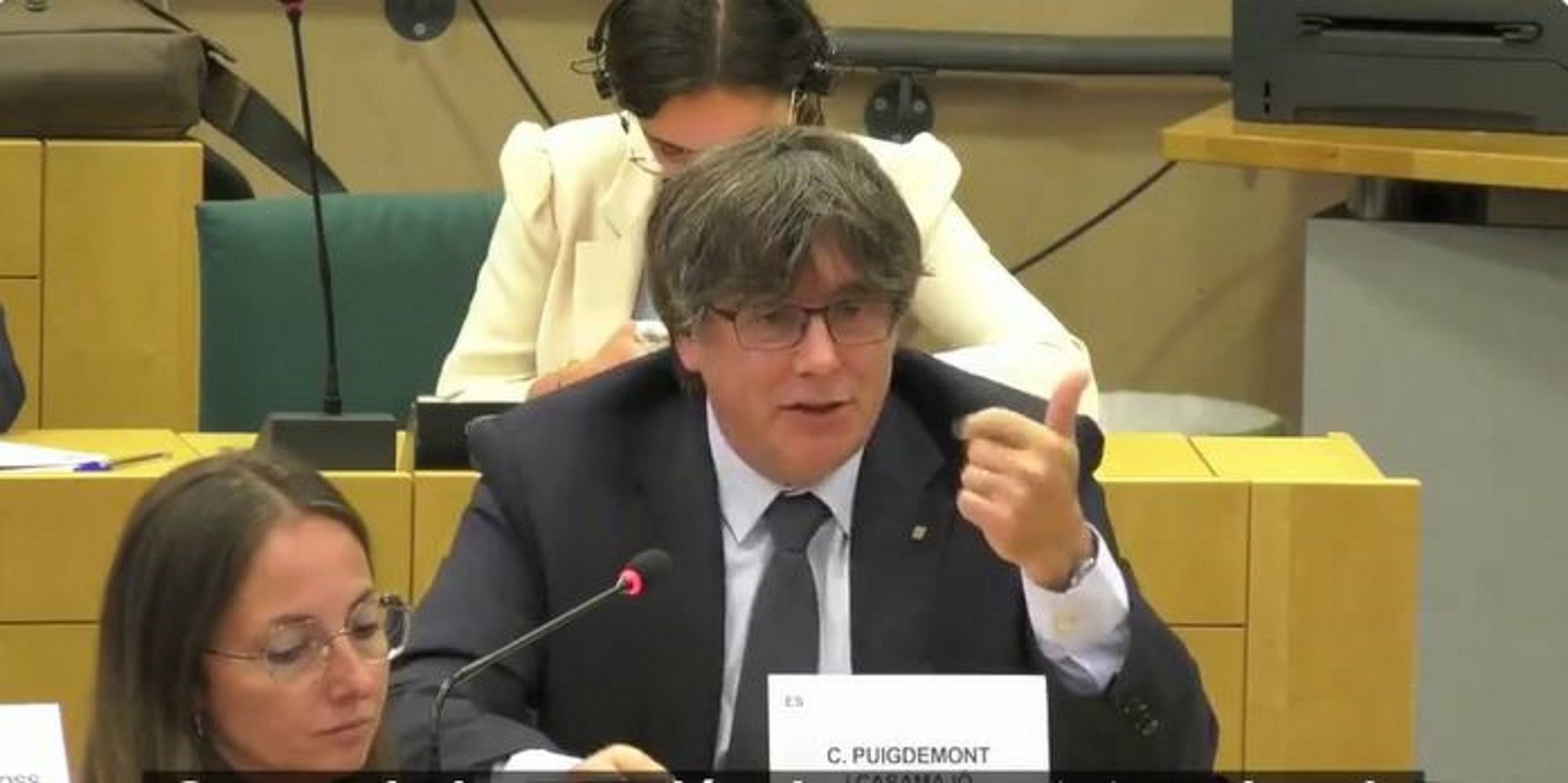A full session of the Spanish Constitutional Court has rejected the appeal for constitutional protection presented by MEPs Carles Puigdemont and Toni Comín, against the resolution of January 10th, 2020, by judge Pablo Llarena, in which he asked the European Parliament to suspend the Catalan politicians' parliamentary immunity, the court reported this Wednesday. The European chamber lifted the immunity of Puigdemont and Comín in March 2021, but the European Court of Justice (ECJ) returned it to them on an interim basis until their appeals over the violation of their rights are resolved. The defence lawyer for the Junts MEPs, Gonzalo Boye, had asked the court to halt this resolution and to submit a preliminary question to the ECJ, arguing that it is the competence of the European courts, with hearings directly relevant to the question having been held last week in Luxembourg.
The court did not want to enter into the substance of their violation of rights but ruled out granting protection to Puigdemont and Comín via the argument that the request to lift the parliamentary immunity has already been granted and the substance of the case is in another jurisdiction, that is, that of the EU courts, and any resolution "would have no effect." In other words, it declares them partially right.
Endorsement for Llarena's request
In a press release, the Constitutional Court announces its ruling and affirms that "the request for a waiver of immunity, considered in isolation, cannot be understood as an injury to the rights of the exercise of the representative function, but as a constitutionally recognized institution of guarantee". The judges add that they "understand that there are procedural vices that make it impossible to enter into the denunciations" of Puigdemont and Comín regarding the violation of their rights, but evades any responsibility and does not assess the irregularities mentioned.
Specifically, the two Junts MEPs denounced violations of their right to the judge predetermined by law, the right to an impartial judge and a legally-founded ruling, as well as to the freedoms of ideology and expression.
The ball, in the European "courts"
The Spanish court states that it also declines to give them constitutional protection over the main object of the claim, that their right to parliamentary immunity was violated, as well over the irregularity that the request to lift the immunity was made by the president of the Supreme Court and not the justice ministry. The Constitutional Court specifies that the granting and denial of the immunity request is a purely parliamentary and non-jurisdictional act, and that the analysis that is being demanded of the court is the appeal of the case T-272/21, the hearing of which was held last week at the EU General Court and - the Spanish court notes - is pending resolution. And it concludes by dismissing the appeal for protection on the understanding that this other procedure has been opened by the appellants, referring to the General Court, and therefore this appeal "has lost its raison d'être and any substantive resolution would have no effect".

